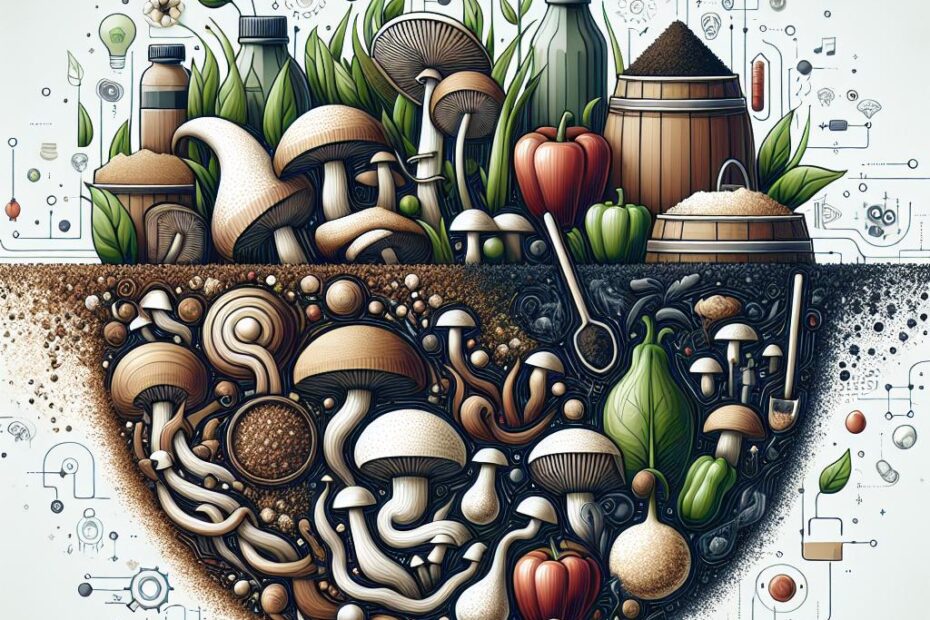In the world of gardening, compost is like black gold. It’s a nutrient-rich soil amendment that can do wonders for your plants, helping them grow healthy and strong. When it comes to growing vegetables, using the right type of compost can make all the difference. One popular option that many gardeners turn to is mushroom compost. But is mushroom compost actually good for vegetables? Let’s dig into the details and find out.
Why Mushroom Compost?
Mushroom compost, also known as mushroom soil, is a type of organic compost that is made from the leftover material after mushrooms have been harvested. This material typically consists of a mix of horse manure, straw, gypsum, and other organic matter. Over time, the mushrooms break down this material, creating a nutrient-rich compost that is full of beneficial microorganisms.
Benefits of Mushroom Compost for Vegetables
Using mushroom compost in your vegetable garden can offer a range of benefits. Here are a few reasons why it can be a good choice for your veggies:
-
Rich in Nutrients: Mushroom compost is packed with essential nutrients like nitrogen, phosphorus, and potassium, which are vital for plant growth.
-
Improves Soil Structure: The organic matter in mushroom compost helps to improve soil structure, making it easier for plants to establish strong root systems.
-
Enhances Soil Fertility: The microorganisms present in mushroom compost can help to improve soil fertility, making it easier for plants to take up nutrients.
-
Suppresses Pests and Diseases: The beneficial microorganisms in mushroom compost can help to suppress harmful pests and diseases in the soil.
How to Use Mushroom Compost
When using mushroom compost in your vegetable garden, it’s important to follow a few guidelines to ensure the best results:
-
Mix it In: Incorporate mushroom compost into your existing soil by mixing it in thoroughly. Aim for a ratio of about 1 part compost to 3 parts soil.
-
Compost Before Planting: Apply mushroom compost a few weeks before planting your vegetables to allow it to fully integrate into the soil.
-
Avoid Fresh Compost: Make sure to use well-aged mushroom compost, as fresh compost can be too acidic for some vegetable plants.
-
Monitor Moisture Levels: Mushroom compost tends to retain moisture well, so make sure to monitor the moisture levels in your soil to prevent overwatering.
Case Study: Growing Tomatoes with Mushroom Compost
One gardener, Sarah, decided to try using mushroom compost in her vegetable garden to see if it would make a difference in her tomato plants. She mixed the compost into her soil before planting her tomato seedlings and was amazed at the results. Her tomato plants grew faster and produced larger, juicier tomatoes than ever before. Sarah attributes this success to the nutrient-rich mushroom compost that provided her plants with everything they needed to thrive.
Conclusion
In conclusion, mushroom compost can be a fantastic option for growing vegetables in your garden. Its nutrient-rich content, ability to improve soil structure, and beneficial microorganisms make it a valuable addition to any garden. By following proper guidelines for using mushroom compost and monitoring your plants’ growth, you can enjoy a bountiful harvest of healthy, vibrant vegetables. Give it a try in your garden and see the difference it can make!
